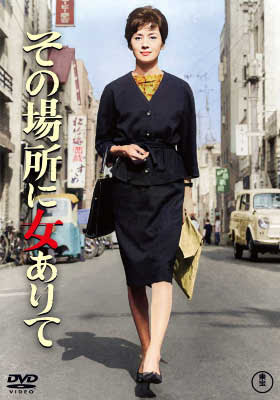Woman of Design
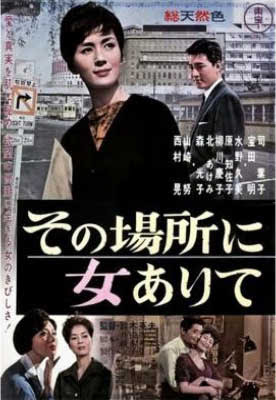
Director: Hideo Suzuki
Year: 1962
Rating: 6.5
I love the look
of this film. Sharp and sleek with saturated colors - the men in tight fitting
conservative suits, the women dressed professionally, the smoky clubs they
go to after work to drink and play mahjong, the cars weaving their way through
the streets of Tokyo. This has aspects of being a soap opera but one without
any expressive melodrama - emotions are kept private and left unsaid for
the most part. When one character near the end breaks down and cries, you
feel like she is crying for everyone who can't. It is 1962 and Japan is on
the go again, beginning the Economic Miracle that was coming. There is a
palpable energy on the streets as people walk to work in the morning with
purpose in their stride.
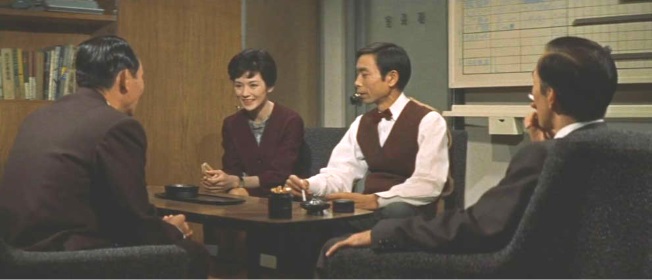
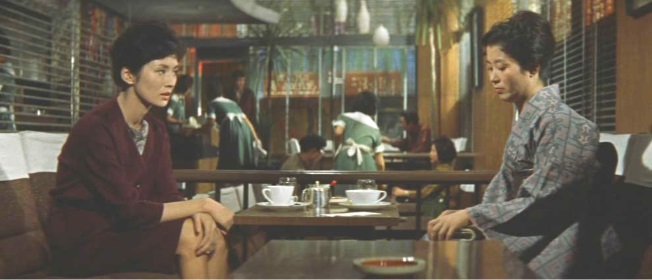
This focuses on four women who work in an
advertising agency at different levels - on their interaction in the office
with their colleagues and on their private lives - though where one stops
and the other starts is a murky line. When you think of most Japanese films
in the 1950s, women are normally portrayed as - either wives, mothers, prostitutes
or geishas. Often conflicted about their role in society yet unable to break
away. But it is a new era and women are at work in white-collar jobs in a
New Japan. In this case in a profession that as one of the characters says
dismissively produces nothing. It is work with no reward besides salary,
nothing tangible to see the result of. The main character feels like it is
poisoning her but at the same time she loves the challenge.
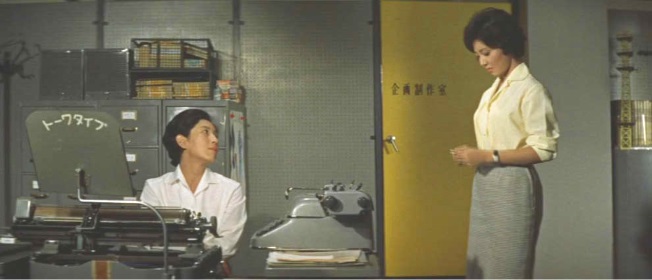
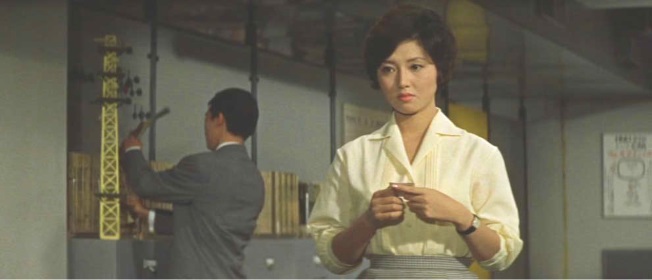
The film stays with Ritsuko (Yôko
Tsukasa) for most of the film with the three other women intersecting in
her story from time to time. She is a pro. Began seven years previously as
a script writer for ads and now is an account manager coordinating the efforts
of the various departments to deliver a proposal for a new customer or product
line. She is nearing thirty - Christmas cake time in Japan as she is reminded
often but marriage or a man isn't in her game plan. To fit into a man's world,
she smokes, drinks whisky and beats them all at mahjong. The other three
are secretaries or typists - one played by Kumi Mizuno is desperately in
love with a man who returns nothing but heartbreak, another a friend of Ritsuko's
who still loves her ex-husband who cheated on her and Yoko (Akemi Kita) who
has all the vestiges of being a lesbian and perhaps in love with Kumi but
it is never made explicit.
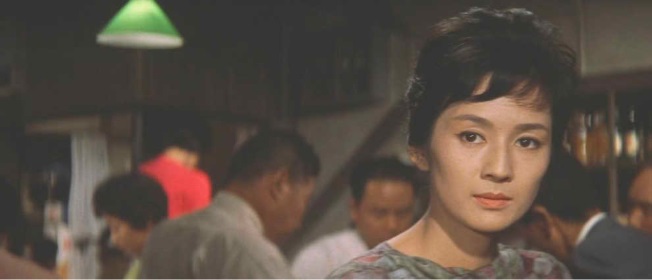
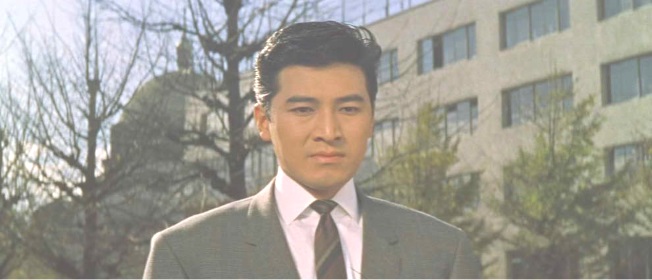
There is no real overarching drama in the
film - just the small dramas of their lives and working towards a common
goal. There are numerous strategy meetings, meetings with customers, playing
mahjong after work and often drinking too much. Men do not come off well
in this. Think Mad Men in Japan. When Ritsuko goes out with customers she
expects to be groped and has learned how to deflect it without offending
the customer. Inside the office she is respected but even there has to fend
off a rape attempt and can say nothing. When he steals her work, she again
says nothing. If you are a woman, you don't break the glass. She has
to put together a proposal for a new energy drink and her competition is
the Daitsu Company with their account manager played by Akira Takarada. It
is all very polite and the two of them look like they may be heading towards
something personal but business comes first. Directed by Hideo Suzuki. It
feels like a snapshot in time.








